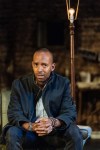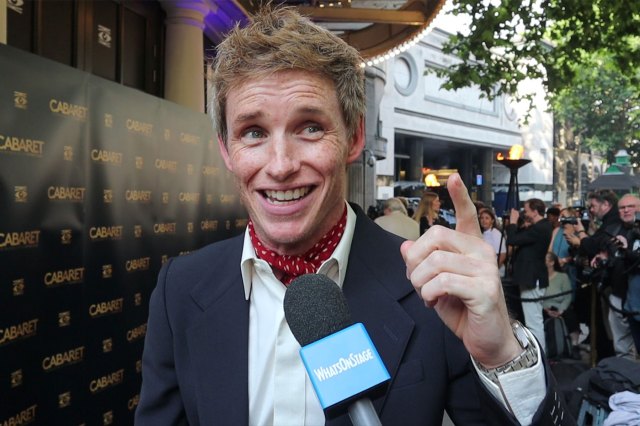Sarah Crompton's top ten shows of 2018
WhatsOnStage’s chief theatre critic picks her top ten theatre productions of 2018
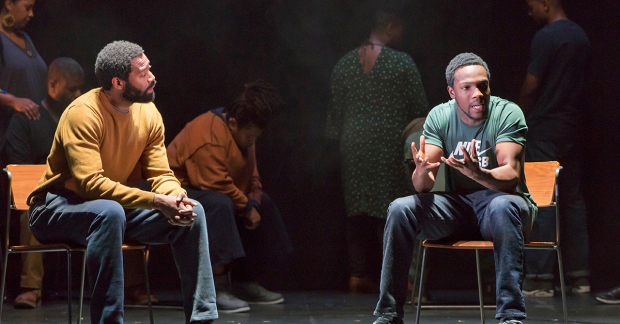
© Stephen Cummiskey
12 months is a long time in the critical world, with some critics seeing hundreds of shows on an annual basis. But WhatsOnStage's chief critic Sarah Crompton has picked her top ten shows for 2018.
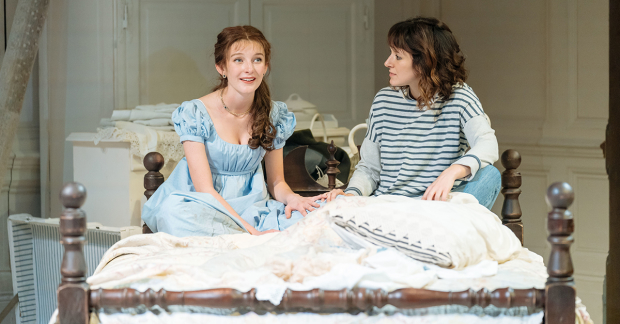
© Manuel Harlan
10. The Watsons, Chichester Festival Theatre, November
Laura Wade has had a good year. Home I'm Darling, a savagely sharp take on the fashion for all things from the 1950s, has been enlivening stages since its debut at Theatr Clwyd in July. And then, just as the year closed, Chichester unveiled this gem – Wade's completion, in entirely inimitable fashion, of Jane Austen's unfinished novel. Like The Writer, The Watsons plays Pirandellian games with the nature of theatre itself; but it is also incredibly funny, perceptive about the position of women in Austen's and in our own time, and stylishly staged. After long and disappointed exposure to people completing Austen's novels, or writing their own versions of them, I hadn't expected to encounter anything so smart, assured or so lovable. I wish it a much longer life than it has currently experienced; audiences are just going to love it.
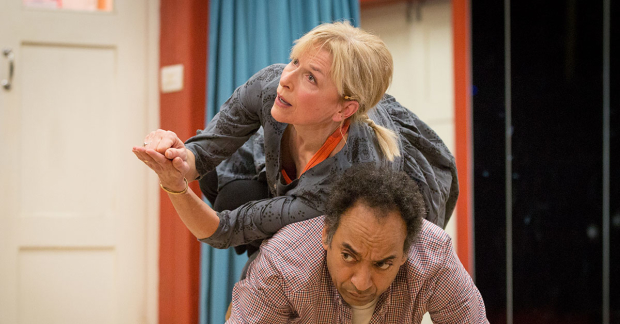
© Marc Brenner
9. Circle, Mirror, Transformation, Home, Manchester, March
A small theme of adoration for Annie Baker may shortly emerge but seeing this revival of her early piece from 2009 was a confirmation of what a distinctive and perceptive voice hers is. It lacks the complexity and allusiveness of either John or The Flick, but it has a rare humanity, and a care for its characters. Baker is a writer who looks hard at people, finds them lacking but still treats them with kindness. Another reason for including it is that I love Home as a venue; and I don't get there often enough.
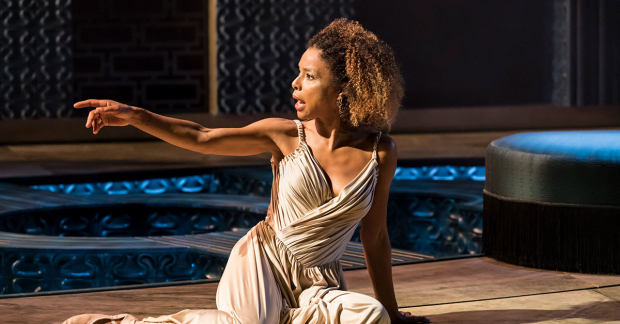
© Johan Persson
8. Antony and Cleopatra, National Theatre, September
I find it odd, compiling this list, that I have ended up choosing two productions from the Olivier, a theatre where it is possible to suffer very bad nights. But, like Translations (which you will come to shortly), Simon Godwin's production of a difficult late Shakespeare, starring Ralph Fiennes and Sophie Okonedo, revealed just how wonderful the space can be when it is animated by a director at the top of his game, a designer (Hildegard Bechtler) who is entirely confident about effects (a submarine rising) and emptiness, and actors who have the confidence to let an intelligent reading of Shakespeare's language shape their performances. I also loved the way it subtly altered our view of the women in the play, partly by making Octavia both human and sympathetic by sending her into the monument to meet Cleopatra at the play's close. My favourite Shakespeare of the year, although Ian McKellen's King Lear ran it very close.
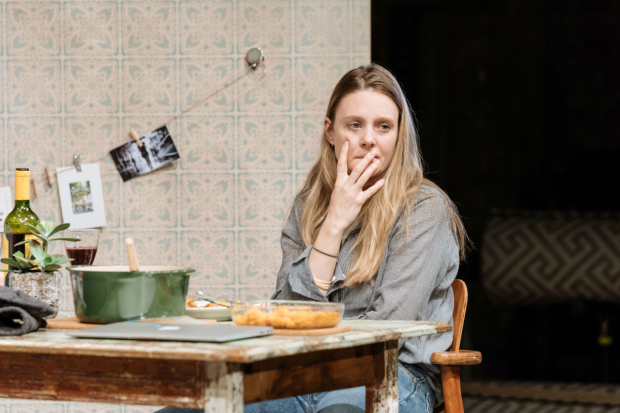
© Manuel Harlan
7. The Writer, Almeida, April
In including Ella Hickson's passionate examination of what it is to be a woman who writes plays, and what art and theatre actually mean anyway, I am depriving myself of space on this list for Marianne Elliott's radical rethinking of Company and Natasha Gordon's debut play Nine Night, both of which I enjoyed more and felt were more fully realised. But I can't ignore The Writer, fluently directed by Blanche McIntyre; it irritated me and annoyed me, but I loved the way it was open to its own contradictions and perfectly prepared to be messy and angry in pursuit of its truths. I still find myself having mental arguments with it and it illuminated a lot of the other work I saw later. It's a terrific, combative piece.
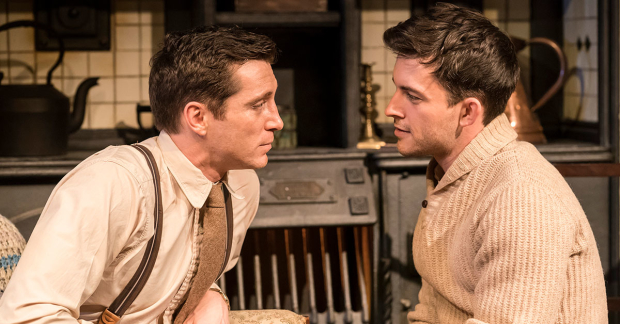
© Johan Persson
6. The York Realist, Donmar Warehouse, February
The surprise of the year. I'd never seen it and the title, and the fact that is so rarely performed, made me think Peter Gill's play about a love affair between two men in the circumscribed setting of a Yorkshire farm cottage where the most exciting action of the week is a trip to a fellowship meeting would be grim and boring. How wrong I was. In this WhatsOnStage nominated revival, beautifully directed by Robert Hastie, it emerged as a tender, lyrical, wise study of a world that has vanished and all the difficulties of class and expectation that make love, straight or gay, then or now, such a minefield.
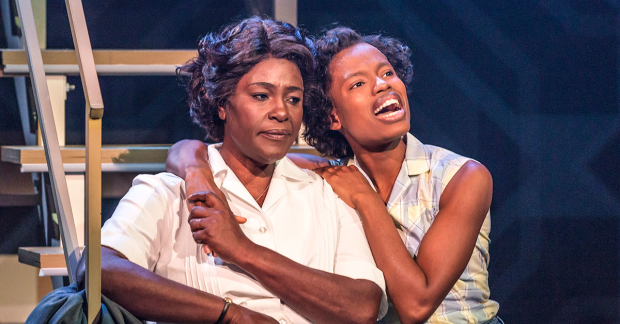
© Marc Brenner
5. Caroline, or Change, Hampstead Theatre, March
Jeanine Tesori has given me two of my best nights in the theatre this year, and the only reason I am choosing to highlight this above Fun Home which I saw at the Young Vic, is that I found the power of Sharon D Clarke's performance so overwhelming I can't bear not to mention it. She brought extraordinary pain and heartbreaking melancholy to her portrayal of the maid Caroline, working for a Jewish family in 1963 Louisiana, furious at her condition, and yet reluctant to lend her support to the civil rights movement swirling around her. Tony Kushner's magnificent book and lyrics, and Michael Longhurst's sensitive direction made it a night to remember – and one you can still catch in the West End.

© Stephen Cummiskey
4. ear for eye, Royal Court, September
An unforgettable and deeply moving night in the theatre, courtesy of debbie tucker green who combines poetry and passion in ever-more sophisticated and affecting ways. What I loved about this piece, for a 16-strong ensemble, was its anger, all the more powerful for being so quietly and allusively conveyed. It was impossible to sit in your seat as a white person and not to feel shame at the way society treats people of colour, forcing them into situations where every action has a consequence that they can never absolutely predict. The urgent question it asks – what can be done about such ingrained discrimination – is never answered. But you know it must be. Graceful, original and sobering.
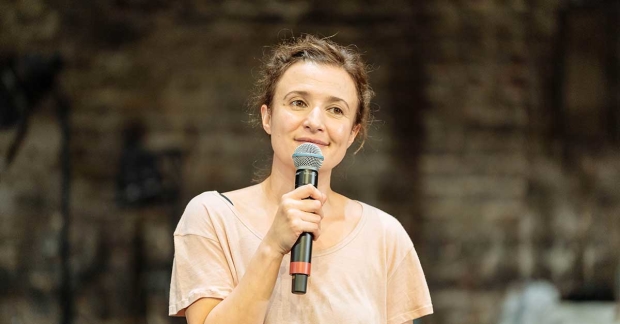
© Manuel Harlan
3. The Wild Duck, Almeida, October
Robert Icke's take on Ibsen was perhaps the most controversial production of the year, even among audiences who could be heard debating loudly on the way out. Essentially, you had to decide whether Icke's bold deconstruction was revelatory, or whether it traduced the great Norwegian playwright and destroyed one of his most devastating plays. For me, it liberated Ibsen from his tight Victorian strait jacket and turned him back into a contemporary playwright with so much to say about how people destroy each other, and the terrifying effects of past wrongs on the present. I loved the way that as it progressed, Icke's interventions grew lighter, and the play was just allowed to fly. At the close, I was so devastated I couldn't leave my seat; when I sent two teenage boys who thought Ibsen was boring to see it, it had exactly the same effect on them.
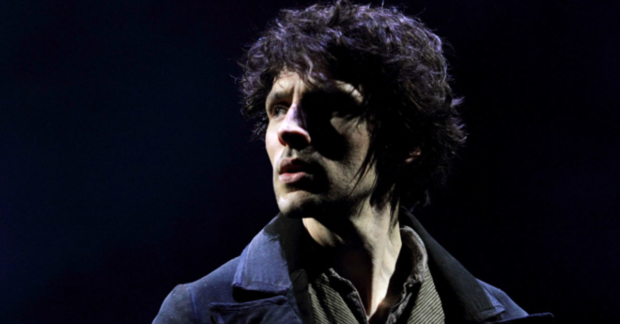
© Catherine Ashmore
2. Translations, National Theatre, June
I've always loved Brian Friel's 1980 play but Ian Rickson's production somehow managed to open new vistas over its richly faceted and subtly shifting landscapes about the boundaries of language and culture. It helped that Rae Smith actually conjured the landscape of Donegal over the Olivier's vast stage, tucking the little hedge school on the side of the space, letting mist and bog fill the rest. It helped too that Colin Morgan made of the returning bilingual Owen a strange, dislocated creature and that Judith Roddy and Adetomiwa Edun as the doomed lovers were so touchingly entwined that when tragedy based on prejudice and lack of empathy inevitably tore them apart, it came as a surprise. But that was the virtue of the entire production; it made you see a classic play differently. My revival of the year.
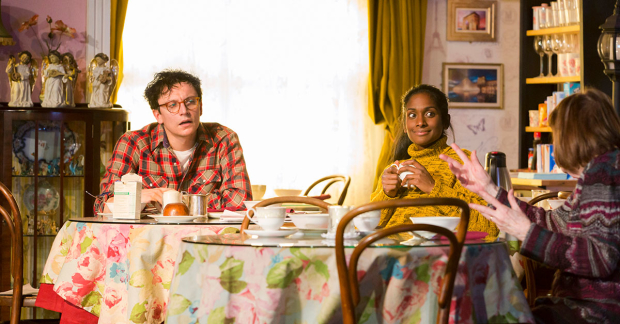
© Stephen Cummiskey
1. John, National Theatre, January
Annie Baker's John was my play of the year, possibly of the decade. It took my breath away, with love and admiration. Yet if I start to try to tell you exactly what it is about, it is so rich and resonant that I will struggle. I can tell you that it is set in a Gettysburg guest house where an ill-matched couple are visiting the battlefield sights in the week after Thanksgiving. There they encounter the eccentric Mertis, who runs the place and her blind friend Genevieve. They argue. The women talk. Ghosts and uncertainty stalk the action. Wonderfully performed (particularly by Marylouise Burke and June Watson) and utterly engrossing, this is a play that will be studied for years and years to come. It deserves mention in the same breath as Albee and O'Neill. It is a work of genius.








